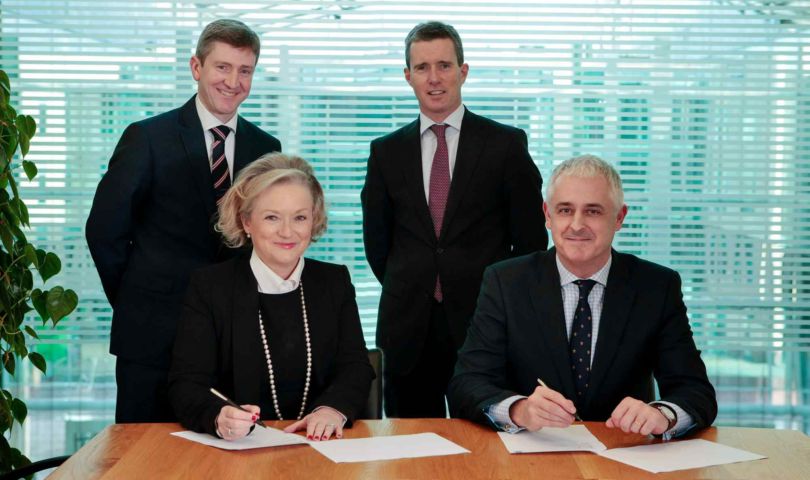Law firms Ronan Daly Jermyn (RDJ) and JM Burke Tax Solicitors have announced plans to merge in early April.
JM Burke is a niche solicitors practice based in Dublin 4 that specialises in largely contentious tax work. Managing partner Julie Burke and Clare McGuinness will join Ronan Daly Jermyn as partners in its tax practice, with Caitriona Moran as an assistant solicitor. All three will be based in RDJ’s Dublin office at Harbourmaster Place.
Burke is a Fellow of the Irish Tax Institute and is well-known as a tax author and lecturer. In 2015, she was the chairperson of the Irish Government’s Tax Administration Liaison Audit Committee.
She is the current editor of Irish Tax Review and she is also the editor of the Irish Tax Institute’s publication, ‘Revenue Audits and Investigations – the Professional Handbook’, the second edition of which is co-authored by Mark Barrett and Clare McGuinness.
RDJ is a full-service law firm with offices in Cork, Dublin, Galway and London. Its staff of 220 people includes 100 lawyers who handle a full range of transactions, for both private and public clients, across a variety of industry sectors.
Richard Martin, managing partner at RDJ, said: “We are delighted to be joined by JM Burke, which is a unique practice offering specialist tax litigation advice and brings with it a depth of experience dealing with a full range of contentious tax issues.”
He added: “Julie and her team will be a valuable addition to our tax practice and the firm overall.”
Julie Burke said: “We are excited to join Ronan Daly Jermyn’s national team. With a full service offering and offices in locations strategically important to our clients, such as Dublin, Cork and Galway, we now offer a more robust platform and critical mass to handle the most complex contentious tax matters and litigation.”
John Cuddigan, head of RDJ’s tax practice, pointed out that the merger was coming at a time when the new tax appeals procedures are about to come into force (on March 21).
He continued: “The act introduces a new appeals process, one aspect of which is that appeals against a decision or determination of the Appeal Commissioners can only be made to the High Court and then on points of law.
“This fact alone will mean that tax appeals will require greater technical resources to be applied at an earlier stage, given the increased importance of the first stage of the appeal process.
“Our tax group now, through the merger, has the combined skills, resource and experience to provide such services to a wider client base on a national basis.”
Photo: Julie Burke, tax partner; Richard Martin, managing partner; Mark Barrett (back left), chartered tax adviser; John Cuddigan, head of Ronan Daly Jermyn Tax Practice (back right)








